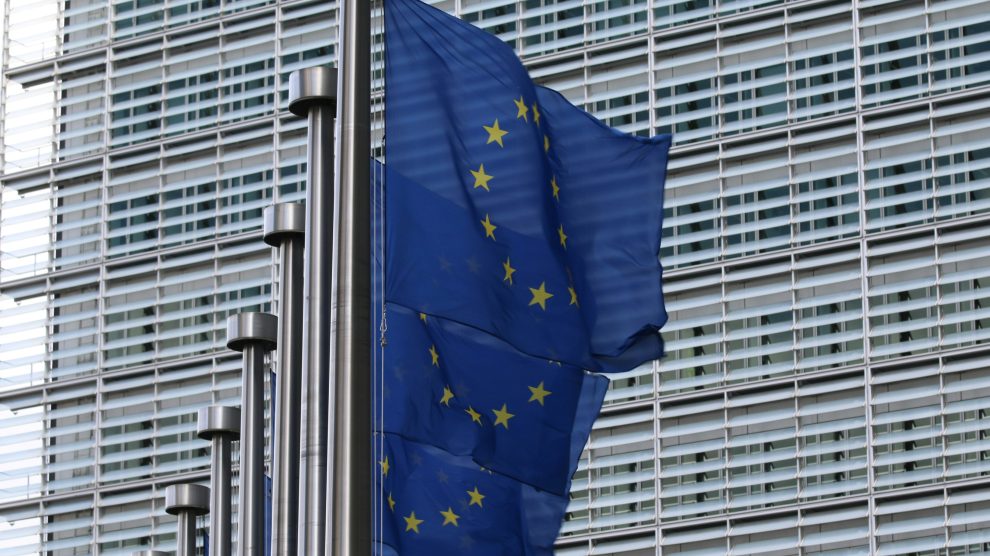Values-based communication will be needed to build a politically viable enlargement narrative that can withstand the test of populism and disinformation. The end goal should be that of maintaining the EU’s appeal.
In the wider geopolitical context shaped by Russia’s war of aggression against Ukraine, one of the most important messages sent by the European Union came in November last year with Ursula von der Leyen’s call to “complete our Union”, in the context of the adoption of the 2023 Enlargement Package.
With the European Commission recommending the opening of EU accession negotiations with Ukraine and Moldova, the opening of EU accession negotiations with Bosnia and Herzegovina once the necessary degree of compliance with membership criteria is achieved, and the granting of candidate country status to Georgia, the subject of enlargement had unquestionably been put back on the EU’s agenda.
- Montenegro’s EU experience should temper Ukrainian jubilation
- Lots of carrot, plenty of stick: The EU’s new growth plan for the Western Balkans
- Why Bulgarian, Romanian hopes for a ‘mini-Schengen’ were a non-starter
The EU leaders endorsing these proposals in December last year was a key, yet natural step forward. In building a distinct geopolitical profile and in fighting heightened disinformation at a time of great security challenges, the EU must appeal to its closest neighbours and fuel membership aspirations.
Moreover, this “European dream” must be brought closer to reality, attainable in a predictable timeframe, and capable of inspiring even the most difficult reforms needed for accession, such as those around the rule of law. And with last year’s positive developments, there’s no turning back: the credibility of the EU is also at stake in the context of candidacy and accession talks.
It is also no secret that 2024 is a super-electoral year, with national elections expected in at least 64 countries around the world, many of them in Europe, as well as at EU level. While elections are constantly surrounded by challenges, the EU finds itself in a unique position: that of ensuring continuity on a file as complex as enlargement, with various internal and external nuances.
For once, there are differences between the candidates for EU membership: while Ukraine, Moldova, and Georgia are on somewhat shared trajectories, faced with the direct consequences of the war in Ukraine, the countries in the Western Balkans have been waiting to advance for years.
For example, EU-Montenegro accession negotiations began in 2012, and, so far, 33 out of 35 negotiation chapters have been opened. EU-Serbia accession talks began in 2014, with 22 out of 35 negotiation chapters open at the moment. North Macedonia and Albania had their first intergovernmental conferences in 2022, as part of their accession negotiations. Bosnia and Herzegovina was granted EU candidate status in December 2022. These countries’ accession paths have not always been smooth, and how their levels of commitment have evolved over the years holds important lessons for the EU, especially in terms of expectations management.
Strategy and tactics
The question that should now be asked is, first and foremost, how to ensure continuity on enlargement and maintain political momentum on this file in a super-electoral year, considering that some of the candidate countries will also hold elections in 2024 (such as Moldova, Georgia, or North Macedonia)?
And while there is no simple answer, strategic communications on enlargement can be used to bridge potential policy-making difficulties in 2024. The right mix of strategy and tactics is hugely important, considering that public communication on enlargement and the very space on the public agenda for this topic are also likely to shrink in the electoral context.
Starting with tactics, 2024 will underline more strongly than ever the need for communications on the delivery of reforms, but now as a two-way street: candidates delivering reform commitments on the one hand and the EU acknowledging progress on the other.
The acknowledgment needs to be public and consistent, as reforms are the cornerstone of trust between institutional stakeholders, as well as in relations with the public in the EU and candidate countries. Proper and values-based communications are needed from both sides to build a politically viable enlargement narrative that would stand even the test of populism and disinformation.
When discussing strategy in the communications of enlargement, the end goal should be that of maintaining the EU’s appeal. This may be Brussels’ main task in this context, but the candidate countries and their institutions also have a role to play in this process, by wisely crafting national narratives on enlargement and its benefits.
Shared responsibility
The reality of elections in the EU is very likely to limit the energy with which stakeholders communicate on this topic, regardless of the pace of technical talks, making strategic communications a shared responsibility. This shared responsibility has described virtually all waves of enlargement, including the 2007 accession of my country, Romania, whose reform and communications experiences hold important lessons, especially for Moldova.
Myself, as a Romanian communicator formerly in government, I understand the challenges of communications in an accession context, and I believe that these challenges can be addressed, including in times of elections, if a whole society is well mobilised.
For this purpose, political actors, businesses, and civil society in candidate countries must find ways to come together, cooperate, and act creatively. The mobilisation is key to fuelling this “European dream”, but also to counterbalance disinformation and elements of great power competition that are often shaping the narrative in candidate countries and beyond.
Photo by Guillaume Périgois on Unsplash
Unlike many news and information platforms, Emerging Europe is free to read, and always will be. There is no paywall here. We are independent, not affiliated with nor representing any political party or business organisation. We want the very best for emerging Europe, nothing more, nothing less. Your support will help us continue to spread the word about this amazing region.
You can contribute here. Thank you.


